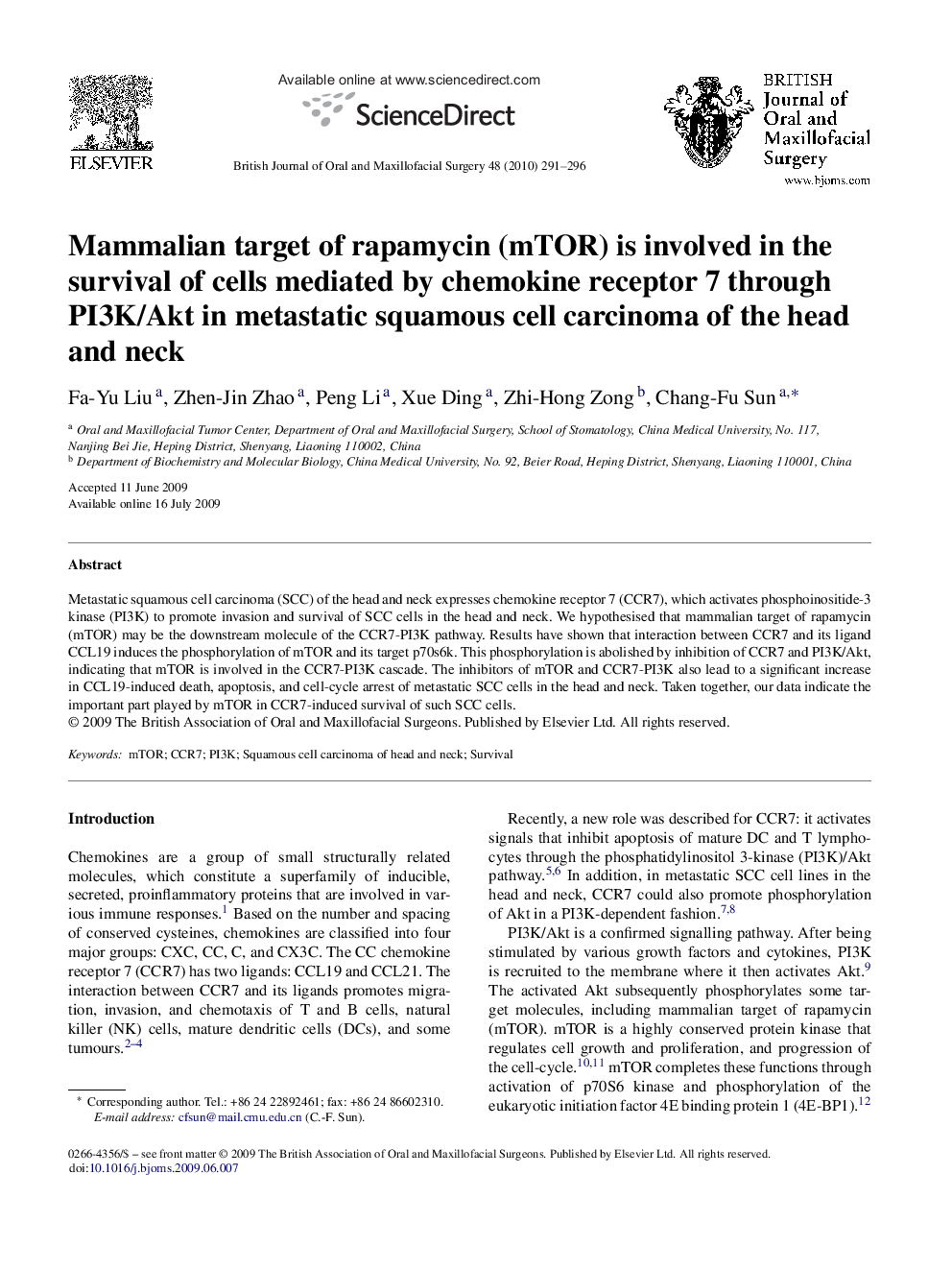| Article ID | Journal | Published Year | Pages | File Type |
|---|---|---|---|---|
| 3124768 | British Journal of Oral and Maxillofacial Surgery | 2010 | 6 Pages |
Abstract
Metastatic squamous cell carcinoma (SCC) of the head and neck expresses chemokine receptor 7 (CCR7), which activates phosphoinositide-3 kinase (PI3K) to promote invasion and survival of SCC cells in the head and neck. We hypothesised that mammalian target of rapamycin (mTOR) may be the downstream molecule of the CCR7-PI3K pathway. Results have shown that interaction between CCR7 and its ligand CCL19 induces the phosphorylation of mTOR and its target p70s6k. This phosphorylation is abolished by inhibition of CCR7 and PI3K/Akt, indicating that mTOR is involved in the CCR7-PI3K cascade. The inhibitors of mTOR and CCR7-PI3K also lead to a significant increase in CCL19-induced death, apoptosis, and cell-cycle arrest of metastatic SCC cells in the head and neck. Taken together, our data indicate the important part played by mTOR in CCR7-induced survival of such SCC cells.
Related Topics
Health Sciences
Medicine and Dentistry
Dentistry, Oral Surgery and Medicine
Authors
Fa-Yu Liu, Zhen-Jin Zhao, Peng Li, Xue Ding, Zhi-Hong Zong, Chang-Fu Sun,
